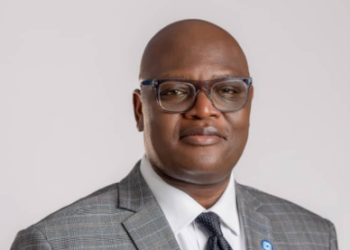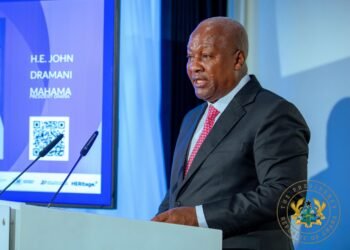Director of the Financial Sector Division at the Ministry of Finance, Sampson Akligoh, has highlighted that one of the major challenges facing the country’s quest to attain economic prosperity is that the ingredient of private sector led-growth has been missing.
According to him, right after the Nkrumah’s era, a lot of efforts have gone into strengthening the private sector to become the engine of growth of the economy. However, he believes that the private sector has failed to live up to expectations, with figures showing that “private sector growth has eluded us”.
“The challenge we have as a country is that the ingredients of private sector led-growth has been missing. And we have tried a lot of ways to get it done. The development bank is actually a very innovative policy instrument that sought to correct that; learning from the lessons we had as a country”.
Mr. Akligoh made this remarks on PM Express on Thursday night whilst explaining the rationale behind the setting up of the new development bank. He indicated that the creation of the new bank is necessitated by the need to close the financing gap that currently exist. This is because most of the banks do not grant long term loans to certain key sectors of the economy.
Moreover, he indicated that the private sector has not been able to create a lot of employment opportunities for the people of Ghana.
“If you look at SSNIT data, we have an average of 1.2 million contributors. We are being told that about 50% of these people are controller and accountant general’s staff; that means that central government staff. When you add them to it, you will see that in terms of formal private sector job creation, with social security, you are talking about 200, 000 or less”.
Development Bank as a key pillar of recovery
Also, Mr. Akligoh stated that the new development bank is a key instrument that underpins the country’s recovery. He explained that even though work on the establishment of the development bank started in 2018, the bank has become an integral part of the CARES Program.
According to him, the new bank has a structure that is totally different from the previous development banks such as ADB and NIB. He enlightened that the ADB and NIB were set up by an Act of Parliament to be retail development banks. According to him, that means that NIB can do direct investment into a business, same as ADB. However, most of them became universal banks along the line because of challenges they encountered operating that model.
Meanwhile, most people are concerned about the burden the new bank will place on the country’s finances. More especially, when the government has contracted concessional loans to fund the bank. However, Mr. Akligoh explained that the funding for the new bank will not add to the already high public debt. According to him, the money is not going into the government’s coffers. Rather, it’s going into the new bank which will then be on-lend to businesses at an interest.
“This is a financially sustainable bank; it’s not going to be a burden to government”.
Furthermore, he indicated that if operated properly, the new development bank will strengthen the financial sector. The aim, therefore, is to create a bank that serves as a safety nest to other banks. According to him, the new bank will also mobilize pension funds for development.
Need for a shift in conversation
To this end, he indicated that the conversation on the bank should rather change to “what we need to do to make it work”. Adding that “a conversation on the DBG is a conversation of the future”.
Also, he highlighted that the government has tasked an independent body to oversee the selection process of the board. Meanwhile, he revealed that KfW Development Bank and the World Bank will have an observer status on the Board. He noted that the World Bank has experiences with previous development banks. As a result, it was very keen on helping the new bank overcome such challenges.
Besides, he noted that the government is working with KfW, a well experienced development bank, to manage the new bank. According to him, KfW will provide technical support to the new bank. He assured that the bank is going to give credit to only qualified institutions. It’s also going to employ the best Board, management, and staff.
Finally, he assured that the bank will commence its operations by the end of July 2021 as the Finance Minister had earlier indicated.
READ MORE: Call off ongoing strike- NLC to KATH lab scientists























